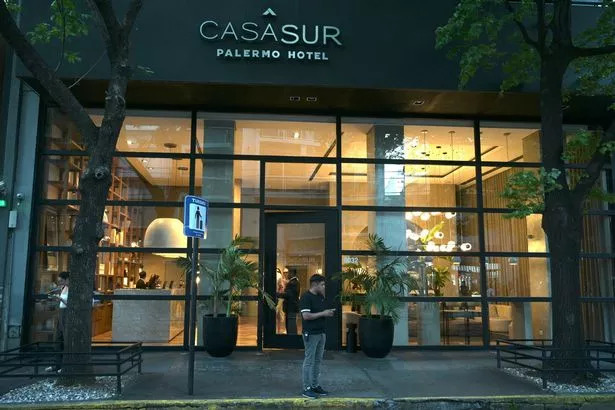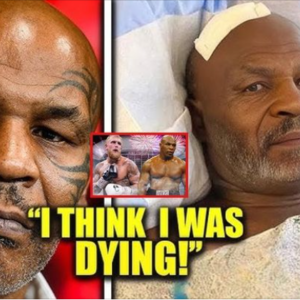Liam Paynes death has been under investigation after the star fell from a third-floor balcony at his hotel in Argentina last month.
The former One Direction singer was 31 years old when he fell to his death at the CasaSur Palermo Hotel in Buenos Aires, Argentina, on October 16. His heartbroken father, Geoff, flew to the capital city and remained there until Liams body was cleared to be flown back to the UK on Wednesday.
In one of only two official statements since Liams death, investigators linked the tragedy to a substance-induced psychotic episode they said they believed he suffered, saying there didnt appear to be any third-party involvement in his balcony plunge. The initial toxicology report found traces of designer drug pink cocaine in his system.
On November 7, a press release from the National Criminal and Correctional Prosecutors Office said that the singers toxicological results were shared with his family and showed that he had traces of alcohol, cocaine and prescription antidepressants in his system. The release said: This conclusion was reached after the complete toxicology tests on urine, blood and vitreous humor.

According to the statement, officials ruled out suicide as in the state he was in, he did not know what he was doing and could not understand it. Not only did they rule out suicide, but the lengthy investigation saw officials arrest three people and charge them with the crimes of abandonment of a person followed by death, supply and facilitation of narcotics.
Argentinian prosecutors probing his death confirmed the arrests of three suspects who are now under formal investigation. They said the crimes were punishable by a prison sentence of up to 15 years on conviction. They also confirmed one of the suspects included a hotel worker.
The first of the accused is the person who accompanied the artist on a daily basis during his stay in the city of Buenos Aires, who is charged with the crimes of abandonment of a person followed by death contemplated in article 106 of the Penal Code and which provides for a prison sentence of 5 to 15 years -, as perpetrator, in ideal concurrence with the supply and facilitation of narcotics (art. 5 inc. e) of Law 23.737 on Narcotics), the statement said.
The second defendant is an employee of the hotel who is charged with two proven supplies of cocaine to Liam Payne during the period he was at the hotel, and the third, also a supplier of narcotics, is charged with two other clearly proven supplies at two different times on 14 October. Both were charged with the offence of supplying narcotics, two acts each (art. 5 inc. e) of Law 23.737).
The report details the investigation carried out by the prosecutors office to reconstruct the days during which Payne was staying at the hotel Casa Sur at 6092 Costa Rica Street in the Autonomous City of Buenos Aires, between 13 and 16 October last.

The statement also said that staff from the prosecutors office and specialised analysts from the Superintendence of Special Investigations and the Technological Support Division of the City Police were made available from the outset by the Deputy Chief of the City Police, Jorge Guillermo Azzolina.
Investigators also examined the contents of Liams phone and analysed his calls, messages, chats on applications and social networks. It went on to say that the registry of guests and the hotels bar/restaurant orders were also examined to find out who visited the musician and his drinking and eating habits.
It continued: Also, with the help of expert personnel from the Superintendence of the Fight against Cybercrime of the City Police, headed by Commissioner General Carlos Gabriel Rojas, several gigabytes of data were obtained and examined in a short period of time from the extraction of data from other mobile phones such as the one at the hotel reception and those of witnesses who volunteered to corroborate their statements.
Although investigators obtained visual, registry, medical, scientific, documentary, telephone, testimonial and much more evidence, the investigation must continue as they are still in the process of unlocking Liams personal broken notebook and other seized devices.
The statement continued: According to the investigation led by Andrea Madrea and his team of prosecutors, which analysed testimonies, video footage, messaging, documents, invoices, social networks and communications, among other elements, at least four supplies of narcotics from third parties and other facilitations of addictive consumption were visibly, concretely and convincingly accredited by his direct environment, which were aimed at the former member of the group One Direction during his stay at the hotel, between 13 and 16 October last.

The official release explained: The morticians of the Forensic Medical Corps (CMF) who carried out the autopsy were the director of the Judicial Morgue, Santiago Maffia Bizzozero, and the forensic doctor Roberto Víctor Cohen, who concluded that Paynes death was caused by polytraumatisms and internal and external haemorrhage, as a result of the fall the musician suffered from the balcony of the third floor room of the hotel in the Palermo neighbourhood where he was staying.
In three additional reports of medico-legal considerations, requested by the prosecutor Madrea, Maffia Bizzozero and Cohen ratified, among other points, that all the injuries that Payne presented were compatible with those produced by a fall from a height and that self-injury of any kind and/or the physical intervention of third parties were ruled out. They also stressed that the victim did not adopt a reflexive posture to protect himself in the fall, so that, for the moment, it can be inferred that he may have fallen in a state of semi- or total unconsciousness.
Prosecutor Andrea Madrea requested an additional forensic psychiatric report and took the testimony from the expert who prepared it. Other medical antecedents of Liams medical history have not been analysed yet but they concluded that his lack of defence or conservation reflex in the fall from the balcony meant he wasnt fully conscious or was in a state of noticeable decrease or abolition of consciousness when he fell.
For the prosecution, this situation would also rule out the possibility of a conscious or voluntary act on the part of the victim, since, in the state he was in, he did not know what he was doing and could not understand it, they said.





